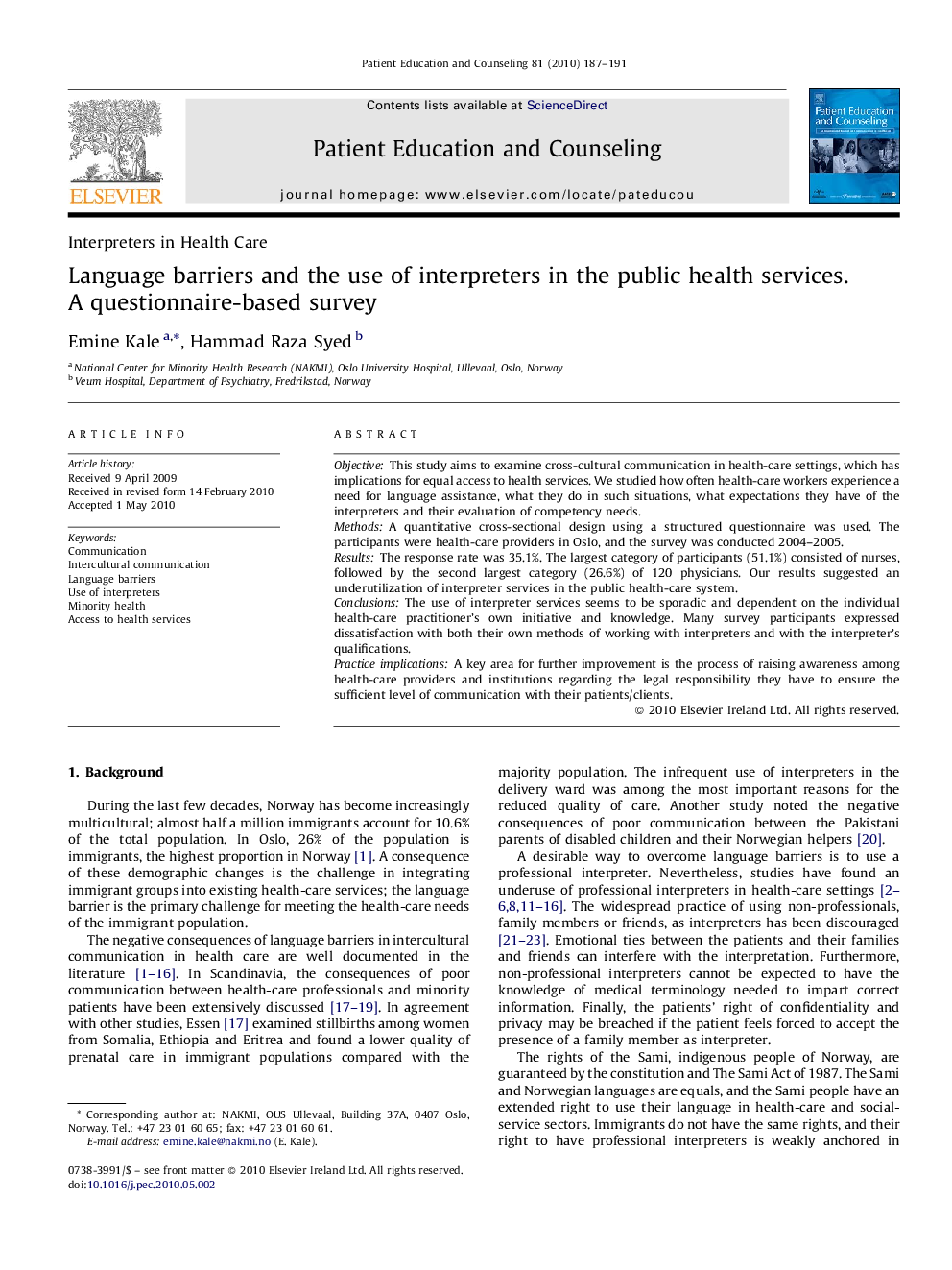| Article ID | Journal | Published Year | Pages | File Type |
|---|---|---|---|---|
| 3814686 | Patient Education and Counseling | 2010 | 5 Pages |
ObjectiveThis study aims to examine cross-cultural communication in health-care settings, which has implications for equal access to health services. We studied how often health-care workers experience a need for language assistance, what they do in such situations, what expectations they have of the interpreters and their evaluation of competency needs.MethodsA quantitative cross-sectional design using a structured questionnaire was used. The participants were health-care providers in Oslo, and the survey was conducted 2004–2005.ResultsThe response rate was 35.1%. The largest category of participants (51.1%) consisted of nurses, followed by the second largest category (26.6%) of 120 physicians. Our results suggested an underutilization of interpreter services in the public health-care system.ConclusionsThe use of interpreter services seems to be sporadic and dependent on the individual health-care practitioner's own initiative and knowledge. Many survey participants expressed dissatisfaction with both their own methods of working with interpreters and with the interpreter's qualifications.Practice implicationsA key area for further improvement is the process of raising awareness among health-care providers and institutions regarding the legal responsibility they have to ensure the sufficient level of communication with their patients/clients.
